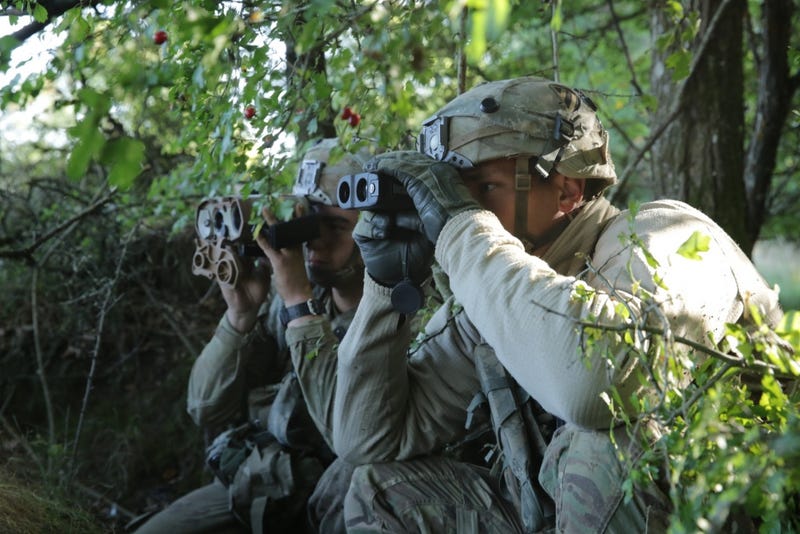
The 1990s occupies an interesting place in the history of Special Operations. In the time after the Cold War ended and before the War on Terror began, some even felt Special Operations were no longer relevant.
Without a formal war to fight, some Special Ops units got involved in the war on drugs in Central and South America. A few Special Forces teams even worked counter-narcotics missions on American soil.
These missions took place under Joint Task Force 6, since renamed Joint Task Force North, which was first activated in 1989.
Mike Perry served on ODA 192 in the 1990s, when his Team Sergeant volunteered them for a mission with JTF6. "You had a pretty unlimited budget," for the mission Perry recalled in a recent interview. "I remember sitting on the Mexican border with some handheld Magnavox thermal imagers which were super high speed at the time," he said.
The ODA's mission was surveillance on the border, in order to catch drug traffickers as they illegally crossed into the United States.
There was a wrinkle of course. They were an active duty team from 1st Special Forces Group. Technically, active duty soldiers cannot deploy operationally within the United States unless the President lifts Posse Comitatus, or the Insurrection Act of 1807 is invoked.
"It was like hey, man you're not working with law enforcement, you're doing reconnaissance training. So if you see something, say something. If you happen to see something while you are conducting reconnaissance training on the Mexican border, perhaps you should call your local law enforcement officers who were the border patrol whose frequency you happen to have in your radio because you were deconflicting land use agreements," Perry said of the justification for their JTF6 deployment.
"That was your legal boiler plate to get around Posse Comitatus, that you are just training in the area," he said.
Perry said he spent 90 days down on the border with Special Forces in 1995, and what he saw in regards to illegal immigration left an impression on him. The border patrol's holding cells would be full by 8 p.m. each night, so if they caught anyone crossing the border after that, they would just ask them to turn around and go back to Mexico unless they were trafficking drugs in which case they were taken into custody.
"It was a lot of human misery," he said of the situation on the border.
Want to get more connected to the stories and resources Connecting Vets has to offer? Click here to sign up for our weekly newsletter.
Reach Jack Murphy: jack@connectingvets.com or @JackMurphyRGR.

